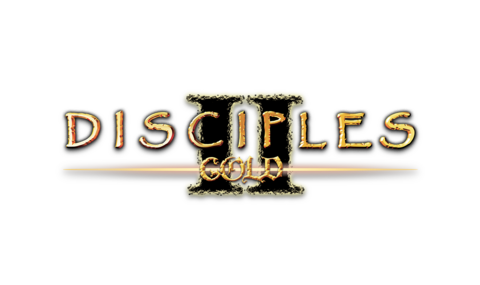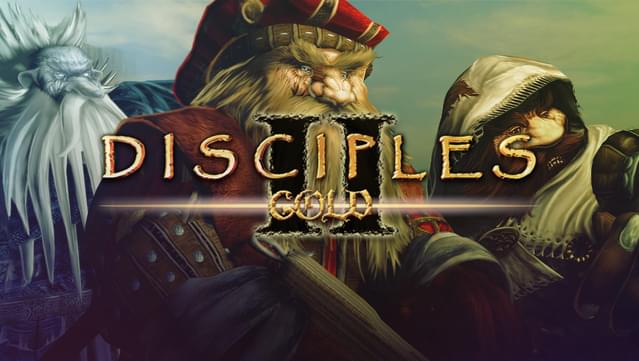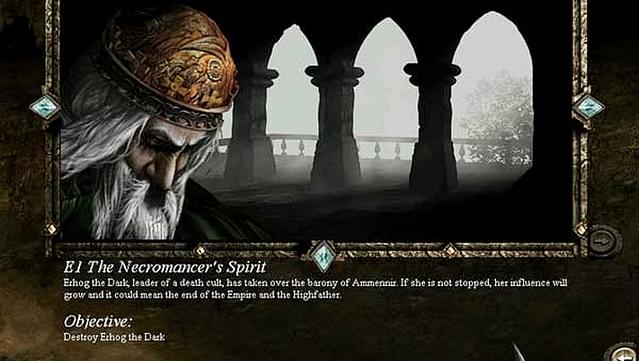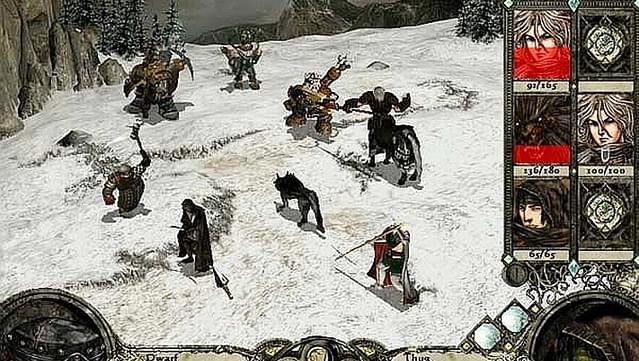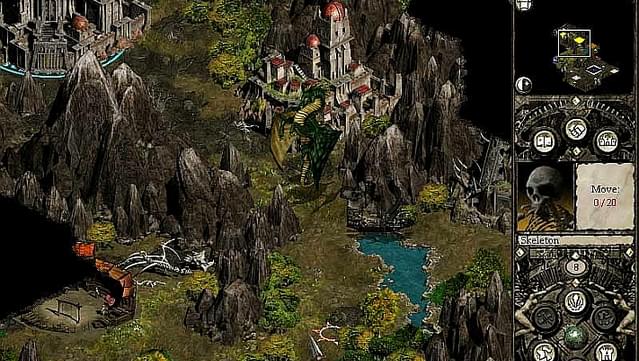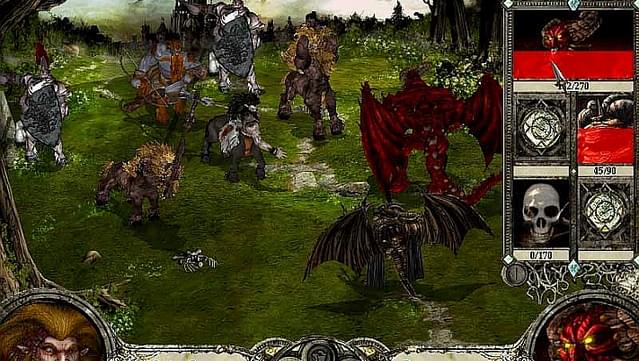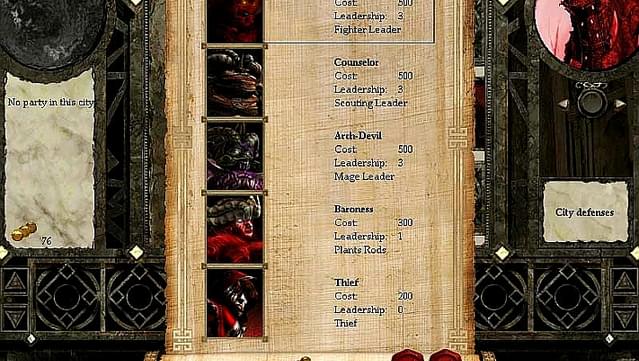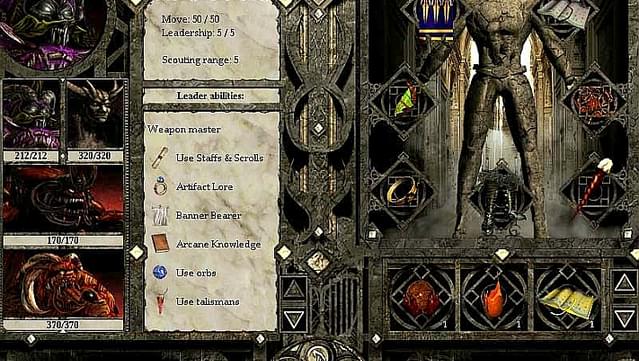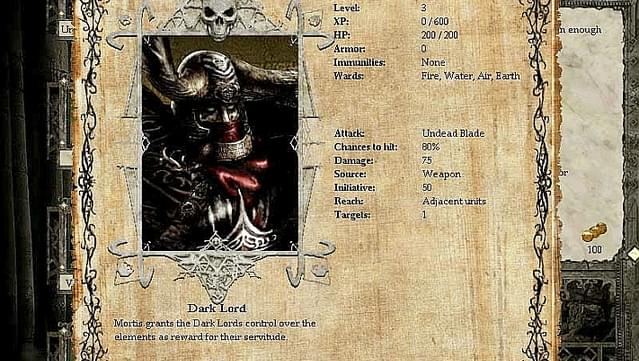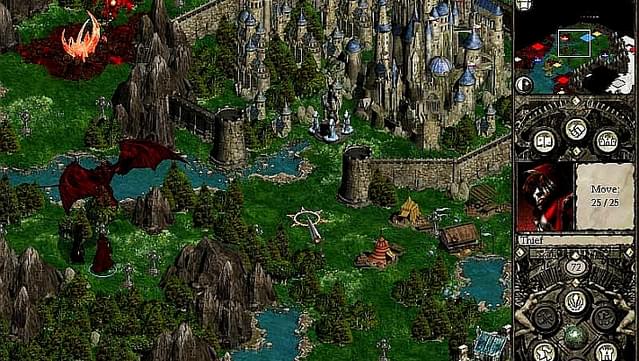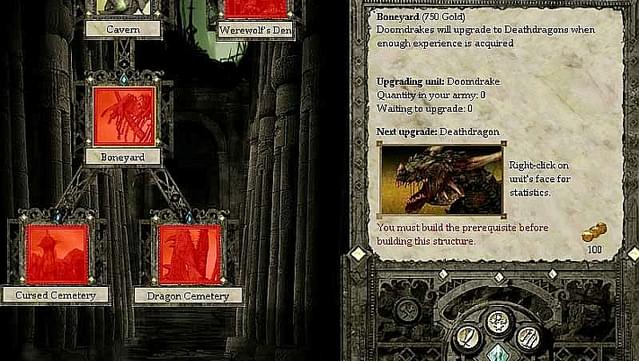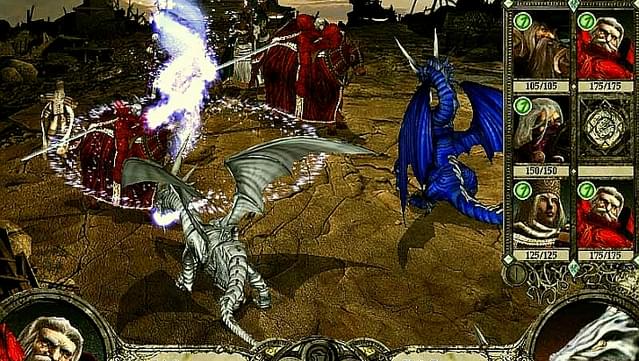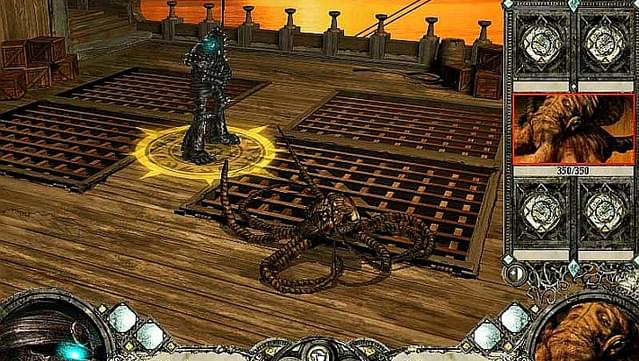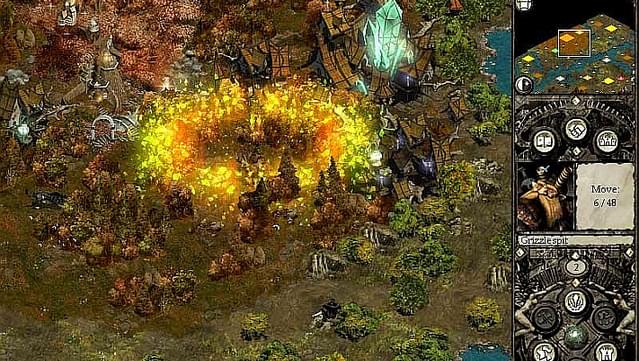Posted on: March 15, 2012

KingCrimson250
Владелец игрыИгр: 240 Отзывов: 7
Second-Tier Strategy Gaming
The big problem with trying to make it in the TBS market is that there isn't a lot of space left. What with the early giants of the genre (games like Master of Orion, Master of Magic, and Civilization) still casting their shadow over modern releases, and the more recent titans like Age of Wonders and Heroes of Might and Magic dominating most of the field today, it can be a tough place to carve out a name for yourself. Disciples 2 attempts to do so, however, and for the most part it succeeds. Nevertheless, a few shortcomings prevent it from being placed with the best of the best of the genre. Disciples 2 takes place in a dark fantasy world, revolving around the conflicts of five different races (Humans, Elves, Dwarves, Demons, and Undead). Players then recruit heroes which can be used to lead their armies around the map, exploring, gathering resources, and fighting enemies. It's hard not to think of the Heroes of Might and Magic series when hearing this formula, but Disciples puts enough of it's own spin on things to make it more worthwhile. First, the player is prompted to choose a "class" for their leader. The leader does not feature in the game itself, but rather has certain bonuses that contribute to the overall governing of the race. Units fighting under the Warrior Lord, for example, heal faster, while the Mage Lord can cast the most powerful spells, and the Guildmaster has more options for espionage and subterfuge. Each leader, in turn, relates to a class of hero - one warrior type, one mage type, and one rogue type - that each has unique advantages and disadvantages. However, while players are restricted to only one leader class per game, they can recruit any hero class. In addition to heroes, each side has two other units they may recruit: a resource gatherer, who can travel the land claiming mines and mana sources, and a thief, who can scout, spy, and conduct espionage missions on enemies. Beyond this, each hero is able to recruit up to five soldiers into their armies. Like heroes, these units come in different classes: Fighter units, ranged units, magic units, support units and giant units. The first three are relatively self-explanatory, the fourth is a fairly wide open category. For example, the Human support unit is a healer, while the Demons get a large, powerful fighter that takes up two army slots. The giant unit is a special type that begins very powerful, but cannot be upgraded. Upgrades play a very important role in the game. Every unit gains experience points, and when they get enough, they upgrade to the next tier. What they upgrade to is determined by which buildings are purchased in the capital - units often have two or more upgrade paths, and it's up to the player to decide which seems more useful. For example, the humans have the Squire, which can upgrade into either a Knight or a Witchhunter. The Knight path allows more options for future upgrades, while the Witchhunter is immune to some of the more devastating abilities of other races. Once you choose one you can't go back, so this becomes an important strategic decision - in this case, can you leverage the Witchhunter's immunities to gain enough early advantage to outweigh the lack of upgrade options later on? Other choices are a bit more straightforward, but no less difficult - the Empire's healer, for example, can upgrade to either heal one ally for a large amount, or all allies for a small amount. These decisions add a large amount of flavour to the game's strategy and lend the game depth - when your units reach the point where they are ready to upgrade, which path to choose can become a nail-biting decision. The combat was initially off-putting as it seems pretty shallow. There is no tactical field, but instead your units are arranged in formation pre-combat and you decide who attacks what. No mistake, there is some strategic depth to be found there, in terms of formation, special abilities, and so forth, but tacticians will find it a bit unfulfilling. The magic system, while similarly simplistic, fares much better. Spells can only be cast on the overworld and are, for the most part, limited to four categories: Buff, debuff, direct damage, and summoning. However, mana is often difficult enough to come by that each spell researched and cast can be a difficult decision, and effective use of magic can easily change the outcome of a coming battle. Perhaps Disciples II's greatest strength is in it's scenarios. The maps you'll play will rarely focus on all-out slugfests, instead each game having it's own, unique objectives. One of my personal favourites involved a scenario where the Demons invaded the Elven lands. The Elves, unable to hold, retreat through the Dwarvern lands, but the Dwarves assume the Elves are invading and so start attacking them. In this map, the Demons must bring a hero to magical pillars scattered around the map in order to destroy the forest with fire, the Elves have to bring certain special units to an objective point in order to escape, and the Dwarves have to use a thief to poison both enemies' water supplies, so that they'll have to withdraw. Whoever completes their respective objective first wins. No map plays the same way, and it's a refreshing challenge to have to try and compete your objective while trying to prevent your enemy from reaching theirs. The game's biggest flaw, however, is it's lack of diversity. With only five races (and that's with the expansion) and a handful of map locations to explore, TBS fans might find they've explored all the options within a relatively short amount of time. There's still hours of enjoyment to be had here, make no mistake, but in comparison to game series like Heroes of Might and Magic or Age of Wonders, one can't help but feel that there could have been more content. And that's ultimately the game's shortcoming. Is it an enjoyable strategy game? Yes, no question. Is it on the same level as some of the other fantasy TBS games on this site? Sadly, no. There's a lot of fun to be had here, and anyone burnt out on AoW and HOMM and MoM but still hungering for fantasy TBS goodness should look no further than here. In short, Disciples 2 is an excellent game, but one that sadly barely falls short of being a must-buy and as a result should sit a bit lower on your priority list.
вам это показалось полезным?
